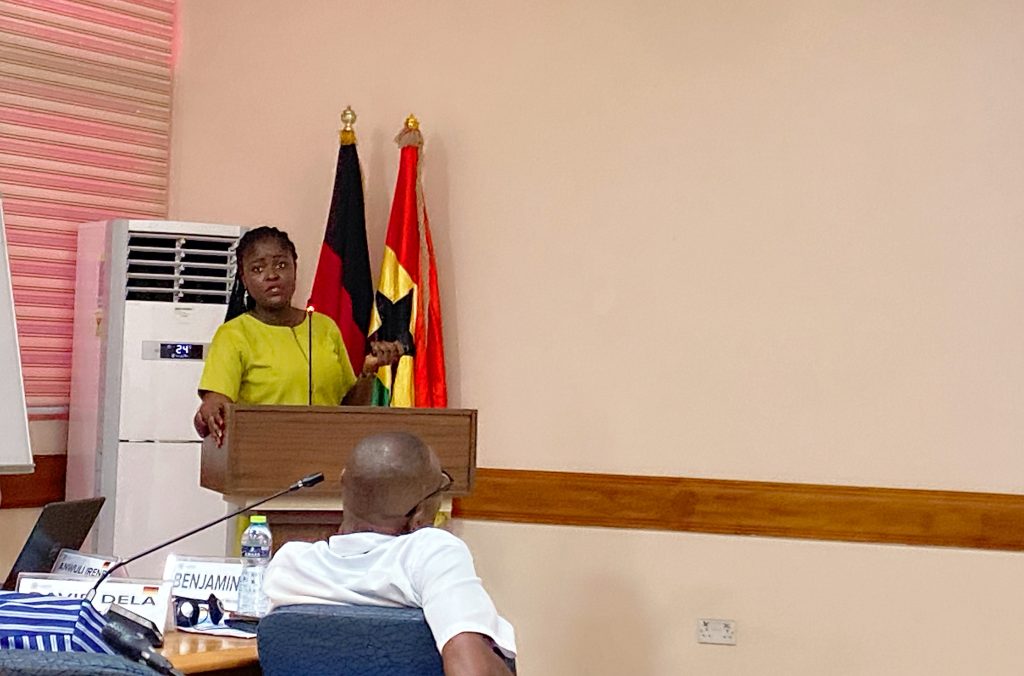By Eric Appah Marfo
Accra, April 19, GNA — Dr Anna Mensah, Lecturer and Research Associate, Faculty of Academic Affairs and Research, Kofi Annan International Peacekeeping Training Centre (KAIPTC), has urged African governments to address economic factors that make people susceptible to trafficking.
“The places we seek to travel to for greener pastures are not all that rosy. But because we find ourselves in unfavourable situations, we feel elsewhere is better. If the systems can work and provide economic stability, we can fight against the vulnerability that makes people smuggled or trafficked,” she said.
Dr Mensah made the call in Accra on Thursday during a presentation on Human Trafficking and Migrant Smuggling.
The presentation was part of the KAIPTC’s two-week Maritime Security and Transnational Organised Crime training for security personnel and maritime experts.

The Course is being sponsored by the German Government.
Dr Mensah said human trafficking was the third most lucrative or profitable globalised business enterprise.
She said that, according to the International Labour Organisation, the “industry” earned several billion US dollars worldwide annually.
The business of trafficking persons from Africa to Europe has a turnover in excess of an estimated $300 million per year.
Dr Mensah said human traffickers may be part of local, national, or international criminal groups or networks of organised crime.
She said people were often “trafficked” by someone they knew such as parents, spouses, uncles, aunts, other family relatives, boyfriends, girlfriends, neighbours, friends, or acquaintances.
Dr. Mensah stated that, while most victims were believed to be women and children, men and boys were also trafficked and exploited for forced labour, organ harvesting, and sexual exploitation, among other things.
She said that the victims were usually in vulnerable situations due to poverty, unemployment, despair, debt, and illiteracy, with most recruited in bars, cafes, clubs, discos, and other public places.
Others are done through informal networks of families and friends; advertisements offering work or study abroad; agencies offering marriage or travel abroad; purchase of children from their guardians; complete coercion through abduction or kidnapping; online/social media recruitment, amongst others.
Dr. Mensah stated that victims of human trafficking frequently suffered from starvation, trauma, despair, social rejection, socially transmitted diseases, nightmares, suicidal thoughts, a lack of education, betrayal and trust issues, promiscuity, injuries, and/or death, among other things.
She said support and protection services should be provided for victims of human trafficking and emphasised that policymakers should prioritise sensitisation programmes to enlighten the citizenry on the subject.
Dr Mensah also called on stakeholders to enhance coordinated trafficking efforts through multi-agency collaboration.
“They must integrate crime threat assessment into mission-planning assessments, mandate review processes and training. It is also important to improve the collection and analysis of data on trafficking in the region,” she added.
Dr. Mensah suggested that authorities should track and seize the proceeds of trafficking to cripple the business.
She also called for the swift and commensurate prosecution of offenders.
GNA